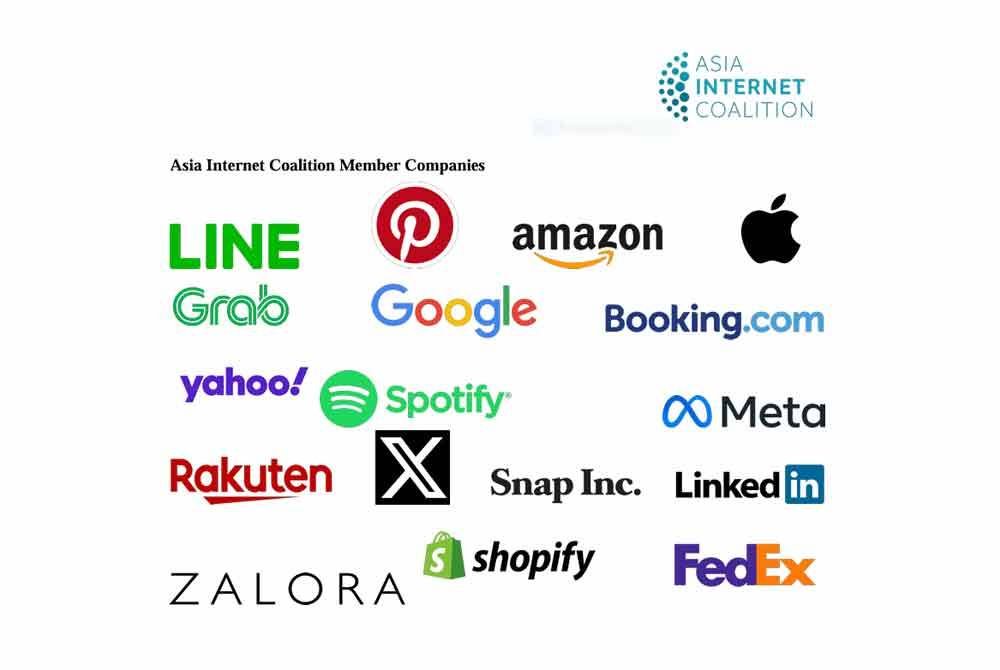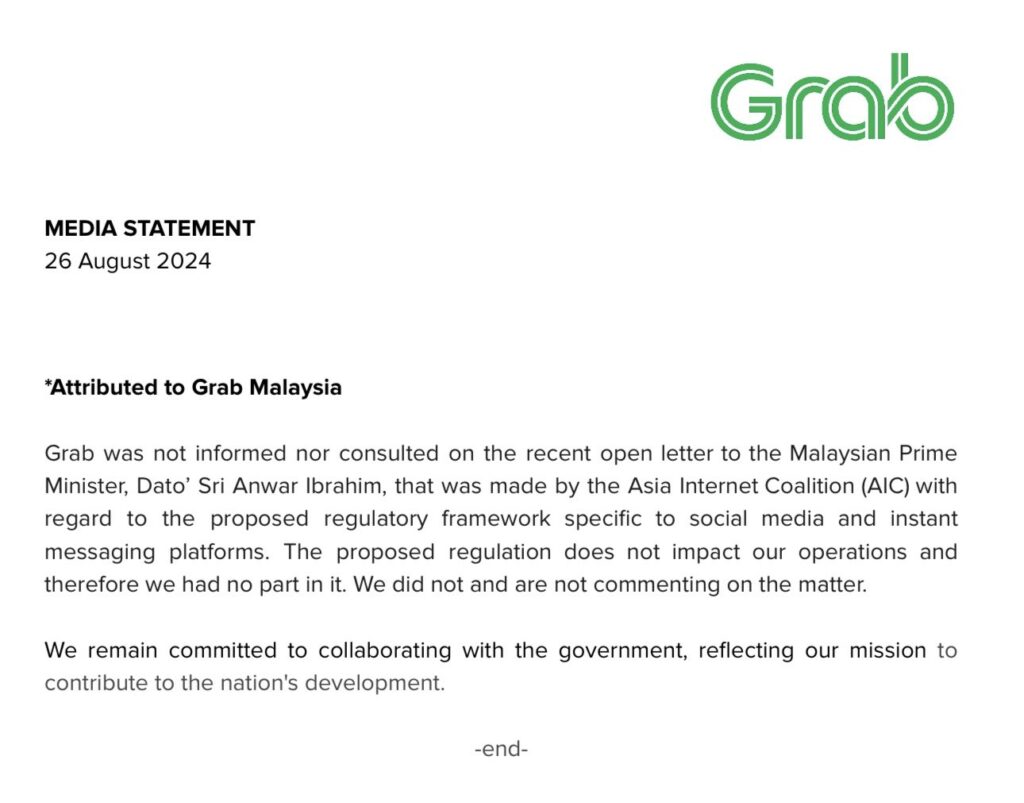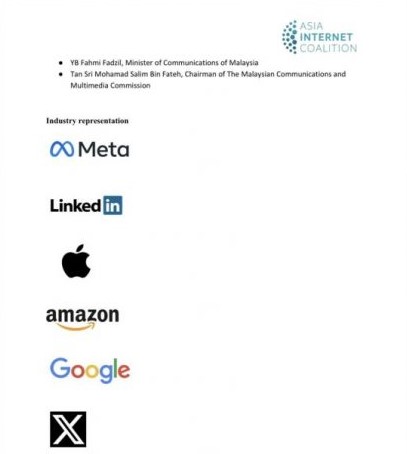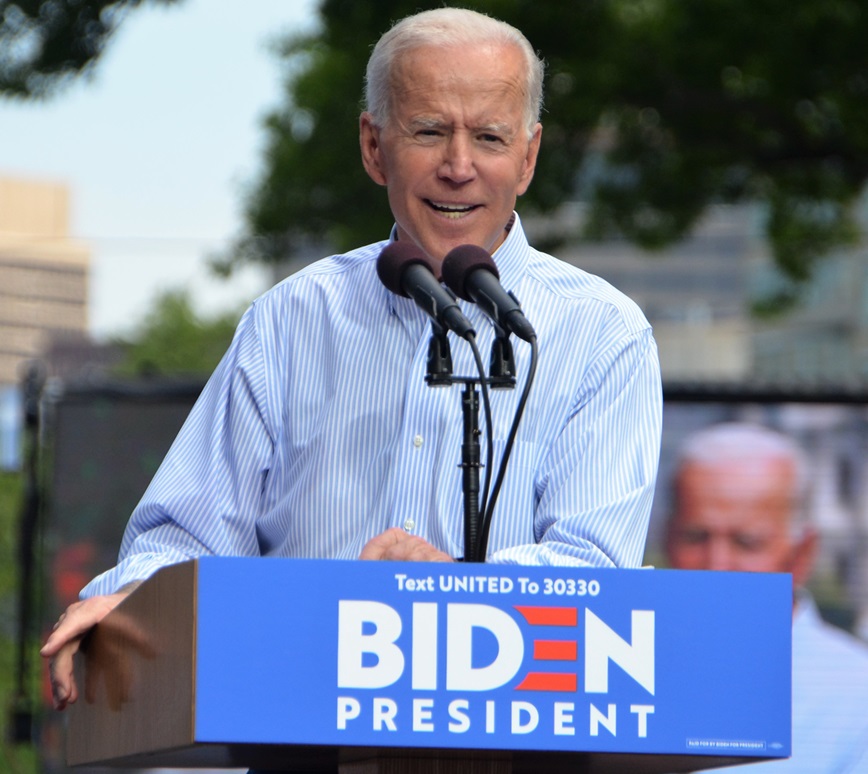KUALA LUMPUR – Putrajaya’s initiative to require social media companies to obtain licences to combat cybercrime is encountering resistance from the Asia Internet Coalition (AIC), a lobby group which appears to be safeguarding US corporate interests.
AIC, which represents major US-based tech companies such as Meta, Google, Apple, Amazon and X recently addressed an open letter to Prime Minister Datuk Seri Anwar Ibrahim, cautioning against the potential consequences of internet regulation.
In their letter, AIC expressed concerns about restricting free speech and the potential negative impact on the digital economy while also alleging that the Malaysian Communications and Multimedia Commission (MCMC) failed to engage with stakeholders effectively.

Following e-hailing platform Grab’s decision to distance itself from AIC’s letter, MCMC questioned whether the lobby group truly represents the tech companies it claims to speak for – highlighting that the government had in fact consulted with X, Facebook, and even the lobby group itself.

However, AIC’s stance on Malaysia’s internet regulation is not new, as the group has previously clashed with Putrajaya.
In 2021, AIC wrote to the Attorney-General’s Chambers to voice their concerns over a law aimed at combating fake news during the Covid-19 pandemic, arguing that such legislation grants excessive power to the government.

AIC’s influence extends beyond Malaysia
According to Telecom Asia, AIC was founded in 2011 by Google, Nokia, Skype, Yahoo, and eBay. Since its inception, AIC has actively lobbied governments across the Asia Pacific region – not just Malaysia.
For instance, during the height of anti-China protests, Hong Kong experienced a surge in doxing activities by both supporters and opponents of the Chinese regime.
In response, then-chief executive Carrie Lam sought to introduce a law to address the issue, assuring that it would target only illegal doxing and that the government was open to stakeholder concerns.
However, AIC opposed the legislation, repeating their usual arguments that anti-doxing laws could curtail free expression. Additionally, AIC warned the Hong Kong administration that such a law might prompt US tech giants to exit the territory, given the risk of prosecution for failing to remove doxing content.

In 2023, India considered introducing a digital competition law to curb unfair practices by large tech companies. The proposal required internet companies to open their platforms to competitors and avoid favouring their own services at the expense of rivals.
AIC criticised the law as regressive, arguing it would stifle digital innovation in India.
Similarly, in 2018, Vietnam implemented a data localisation law requiring online service providers to establish local operations and store data within the country on national security grounds.
AIC responded by stating that the law could suppress freedom of speech and negatively affect Vietnam’s economy.
US tech firms spend millions to safeguard their interests
Jeff Paine, AIC managing director, also holds a similar position at the Singapore-based government consultancy firm PS-Engage Global Government Relations Pte Ltd.
Investigations by Scoop reveal that PS-Engage is a member of various chapters of the American Chamber of Commerce across several Southeast Asian countries.
As the largest lobbying group in America, the American Chamber of Commerce advocates for US corporate interests.
In promoting these interests, AIC’s former director William Fitzgerald noted on X that tech companies not only lobby governments against what they view as unfavourable legislation but also pay consultancy groups to produce reports highlighting the internet’s significant contribution to the economy.
Even without AIC, major tech companies continue to lobby governments through other organisations. One prominent example is the Internet Association (IA), founded by Google, Amazon, eBay, and Facebook, which operates in the US.
In 2019, reports indicated that tech companies spent US$176,000 lobbying California’s legislature, while IA opposed the state’s Consumer Privacy Act, which aimed to give citizens control over their personal information related to advertising by tech companies.

Although IA initially resisted a federal anti-sex trafficking law in 2017 on the grounds that it restricted free speech, the organisation later reversed its stance and supported the legislation.
Despite IA’s closure at the end of 2021, big tech companies have continued to lobby the US government to protect their corporate interests.
According to OpenSecrets, internet companies spent over US$100 million lobbying the US government in 2021. The biggest spender that year was Meta, with a total of US$19.3 million.
Furthermore, during the 2020 US elections, OpenSecrets reported that 90% of tech lobby funds were directed to Democrats, with President Joe Biden receiving US$13.5 billion from the industry.
Alphabet, Google’s parent company, was the largest spender in that election year. – August 30, 2024

